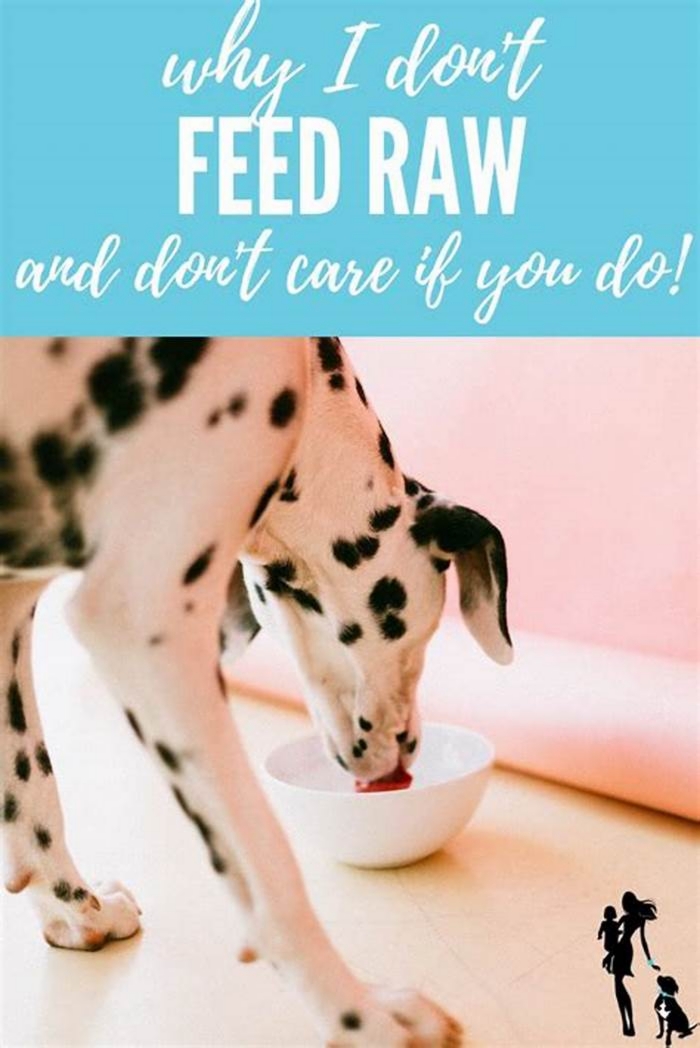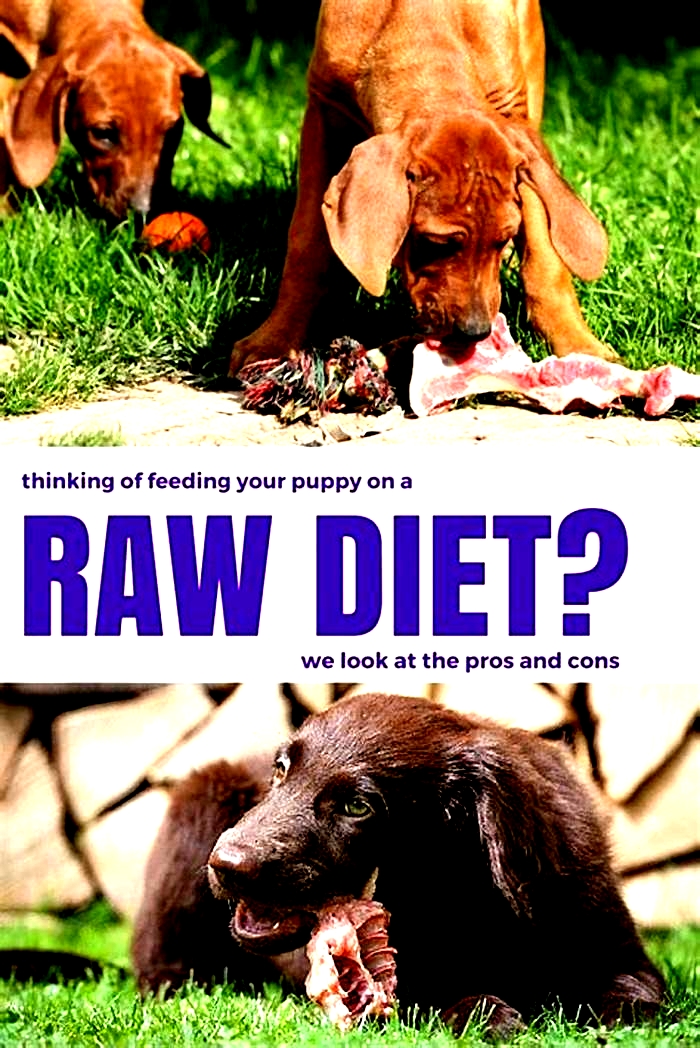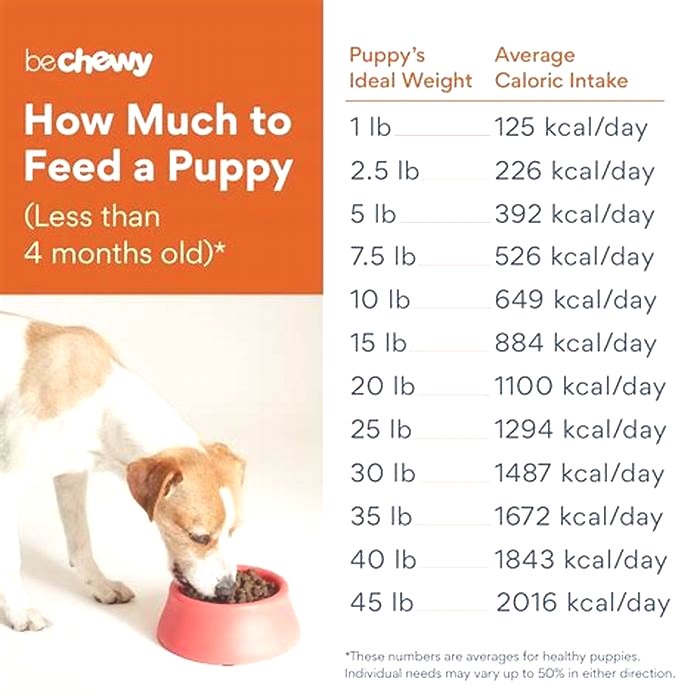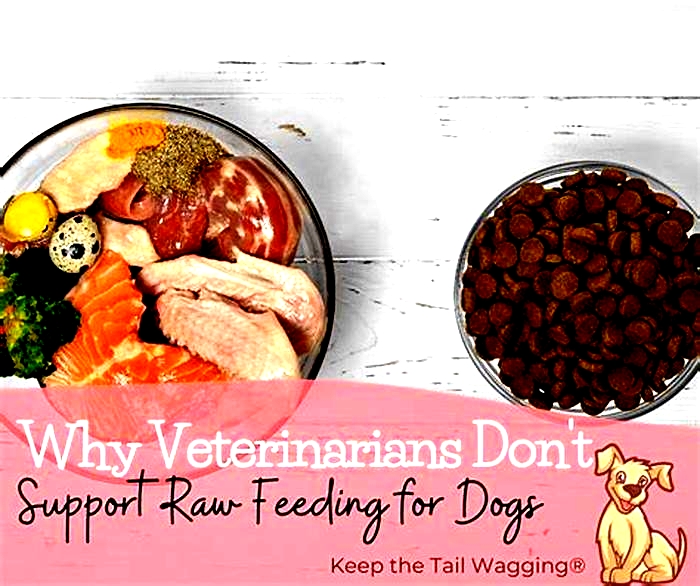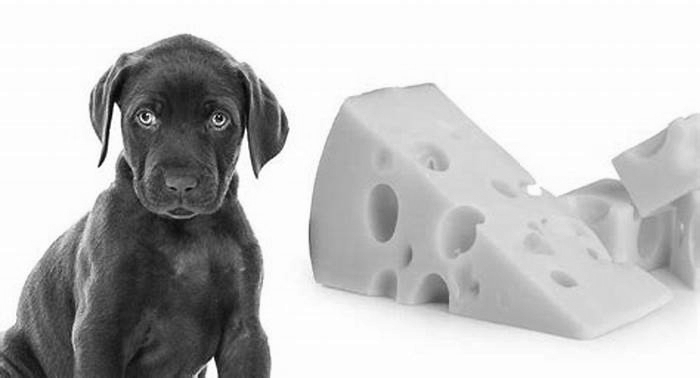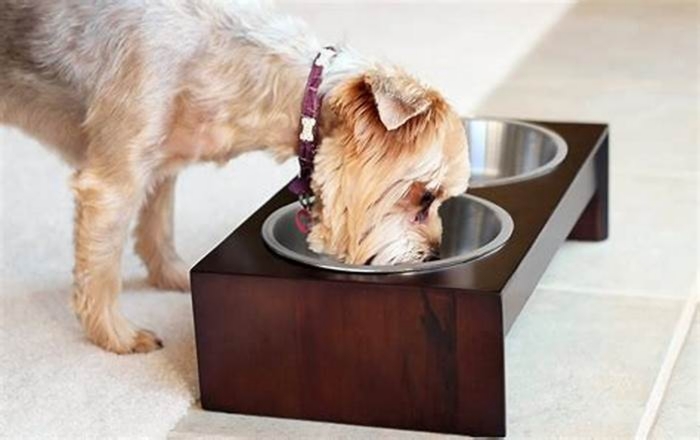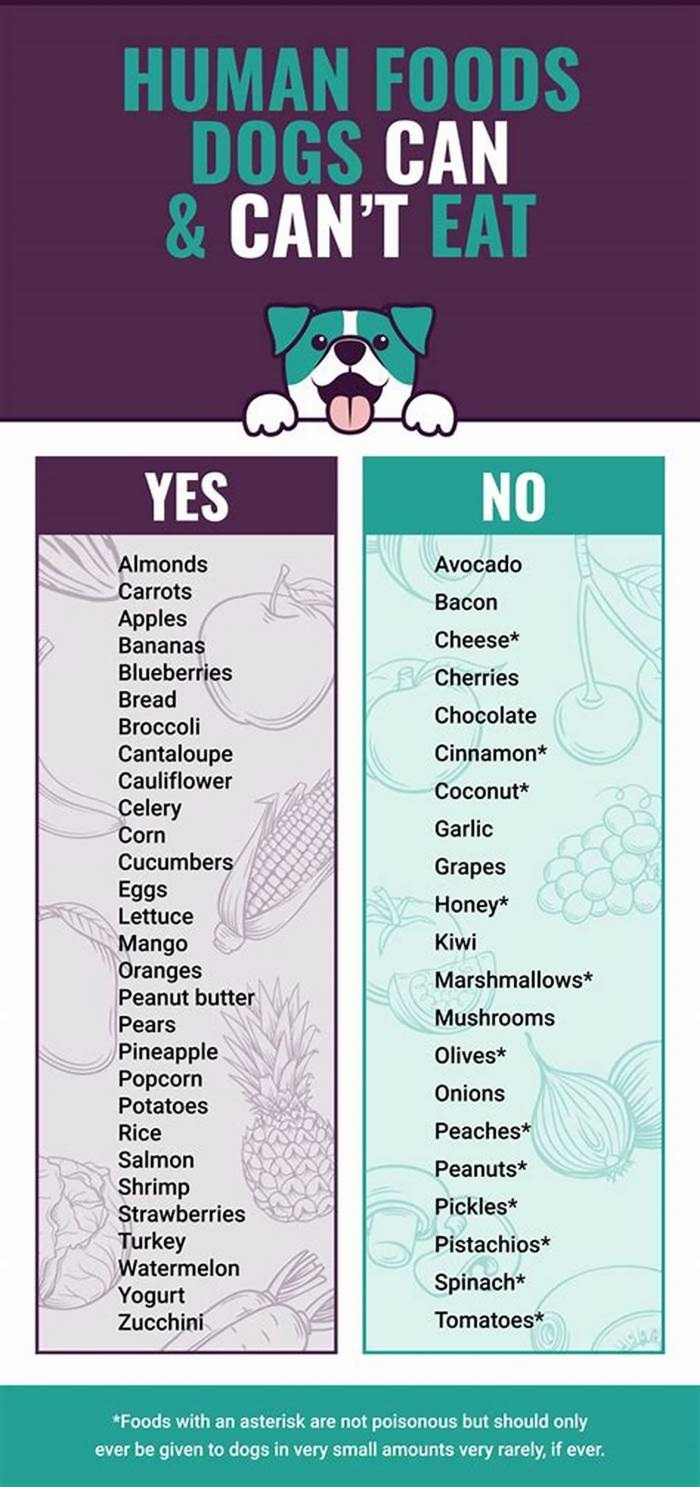Why raw feeding is bad for dogs
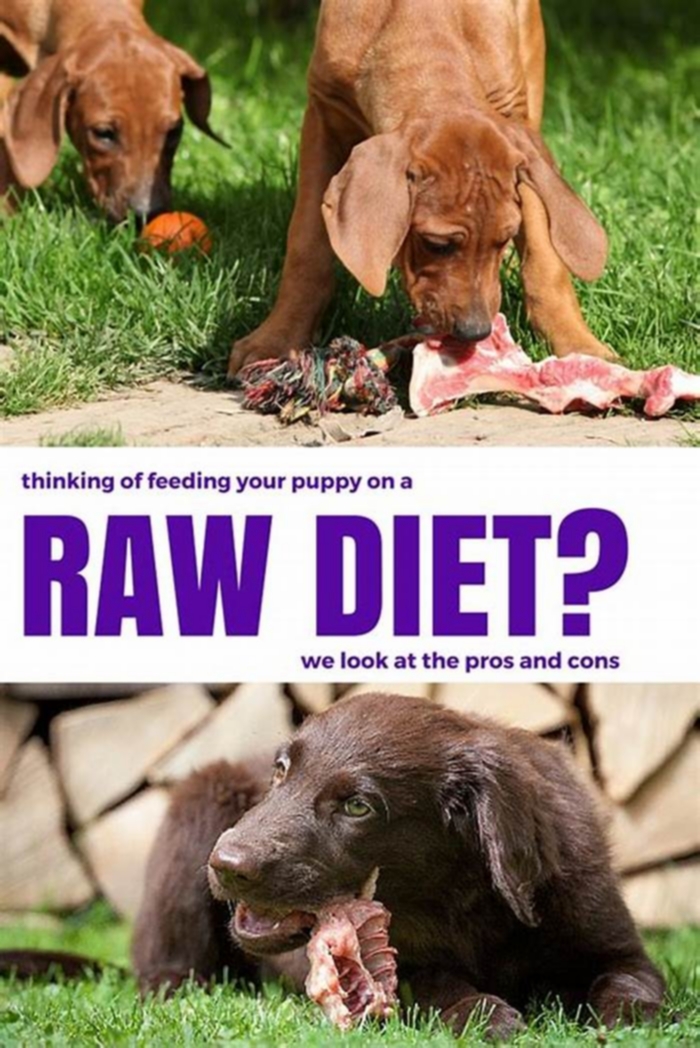
Dangers of Raw Diets for Dogs
"Should I feed my dog a raw diet?" If you've ever heard another pet parent rave about how his or her dog appears to be thriving on a raw meat diet, you might be asking yourself this question. Proponents of raw diets for dogs point out that dogs are biologically similar to carnivorous wolves, and claim that the benefits of this type of diet include healthier skin, coat and teeth, more energy and smaller stools, according to PetMD. However, there is very little scientific evidence to support these claims. In fact, most of the scientific research on raw meat diets for dogs shows that they could do more harm than good.
Dogs Are Not Wolves
 It's a fairly common belief that because dogs are descended from wolves, they should eat a diet similar to that of their wild ancestors. Because wolves are carnivores meaning that they solely eat meat it's often assumed that dogs should also be fed a carnivorous diet.
It's a fairly common belief that because dogs are descended from wolves, they should eat a diet similar to that of their wild ancestors. Because wolves are carnivores meaning that they solely eat meat it's often assumed that dogs should also be fed a carnivorous diet.
The problem with this assumption is that dogs are genetically different from wolves, says Science Magazine. Dogs split off from wolves and became domesticated thousands of years ago. Since then, they have evolved alongside humans to be able to eat much of what humans eat. In a study published in Nature, genetic researchers found clear evidence that dogs have genetically adapted to eat a diet consisting of meats and starches. Feeding your dog nothing but raw meat as though he's a tame wolf has the potential to deprive him of vitamins and nutrients that are vital to his health. Such a diet could pose serious health risks not only to dogs, but also to people.
Dangers of Raw Diets for Dogs
A two-year study conducted by the U.S. Food and Drug Administration from 2010 to 2012 found that raw pet food is more likely than other types of pet food to carry bacteria, including Salmonella and Listeria monocytogenes that cause food borne illnesses. This study prompted the FDA to issue a warning about the public health risks of raw pet food diets. Not only that, but veterinary organizations, like the American Animal Hospital Association, officially recommend against feeding raw meat-based diets to dogs, as does the American Veterinary Medical Association (AVMA).
While it's possible that your dog could get food poisoning from eating raw meat infected by Salmonella, E. Coli, or other disease-causing bacteria, it's more likely that your dog could himself become a carrier, says The Whole Dog Journal. A dog's stomach acid may neutralize infectious bacteria before they make him sick, but there's a chance he could still pass the bacteria to other dogs or people he comes into contact with. What's even more troubling is that a 2011 study in The Canadian Veterinary Journal found that much of the Salmonella found in dogs fed raw meat diets was a type that's resistant to antibiotic drugs.
Another worry of raw diets is obstruction from any bones or other solid artifacts that are not properly removed from the food. These can cause choking or intestinal damage to your pup. Finally, raw diets are not properly balanced to provide your dog with the adequate levels of calcium, phosphorus and vitamin D that are essential to a growing dog's development. For instance, without the right amount of calcium, your puppy could develop skeletal problems.
Balanced Nutrition
 Of course, another important criticism of raw diets for dogs is the lack of balanced nutrition. For healthy dogs that aren't dealing with health problems that require a specialized diet, the American Society for the Protection of Cruelty to Animals recommends feeding a diet with the right balance of protein, water, fats, carbohydrates, vitamins and minerals. High-quality dog foods are formulated specifically to meet these needs in the correct amounts. What's more, a dog's nutritional needs change as he goes through different life stages. Dog foods are typically specifically suited to each stage of your pet's development.
Of course, another important criticism of raw diets for dogs is the lack of balanced nutrition. For healthy dogs that aren't dealing with health problems that require a specialized diet, the American Society for the Protection of Cruelty to Animals recommends feeding a diet with the right balance of protein, water, fats, carbohydrates, vitamins and minerals. High-quality dog foods are formulated specifically to meet these needs in the correct amounts. What's more, a dog's nutritional needs change as he goes through different life stages. Dog foods are typically specifically suited to each stage of your pet's development.
Proponents of raw food diets claim that their dogs' skin and coats showed improvements after switching to raw meat diets; however, it's possible that any previous skin problems occurred from low-quality pet food, an environmental factor no longer around, or negative reactions to an ingredient in one brand of dog food. Instead, switching their dogs to a high-quality dog food may lead to similar improvements while ensuring that their dogs receive the proper balance of nutrients.
Raw Diet Safety
In spite of the risks and the lack of scientific evidence supporting the health benefits of a raw food diet, many people still insist that a raw diet is the healthiest way to feed their dogs. If you're not convinced that raw diets for dogs should be avoided, here are some safety guidelines recommended by the FDA to help reduce the risk of contamination to you and your dog.
- Avoid touching your face or mouth while handling raw pet food.
- Thoroughly wash your hands with soap and water after handling raw meat.
- Clean and disinfect all surfaces, utensils and other objects that came into contact with the raw pet food. The FDA recommends washing the surface with soap and water and then following with a solution of one tablespoon of bleach to one quart of water.
- Freeze raw meat or poultry until you're ready to use them (freezing does not guarantee killing of all the bacteria. Salmonella and E. Coli can often be resistant to cold temperatures). Thaw raw meat in your refrigerator or microwave, not in the sink or on the countertop.
- Carefully handle raw meat or poultry to avoid spreading raw juices to other areas.
- If your pet doesn't finish his food, immediately refrigerate or carefully dispose of the leftovers.
- Avoid kissing your dog on or near his mouth, and don't allow him to lick your face.
- Be sure to wash your face and hands after handling or being licked by your dog.
It's also a good idea to wear disposable gloves while handling your dog's food and to feed him on disposable plates. Because young children and the elderly are especially susceptible to foodborne illnesses, they should never come into contact with this type of dog food.
Your pet's stool is also a potential source of contamination. Be sure to collect and safely dispose of your dog's stool, taking care not to come into contact with it. Thoroughly wash your hands with soap and water when you're done.
With this evidence in hand, you can confidently answer "No" the next time you hear the question "Should I feed my dog a raw diet?" While the enthusiasm of raw diet proponents can be alluring, the safety of your dog and the people in your household should be your highest priority. If you're still not sure, talk to your veterinarian about the best type of food to feed your dog.
Contributor Bio

Jean Marie Bauhaus
Jean Marie Bauhaus is a pet parent, pet blogger, and novelist from Tulsa, Oklahoma, where she usually writes under the supervision of a lapful of fur babies.
Can Dogs Eat Raw Meat?
NOTE: Always check with your veterinarian first before giving your dog any new foods, especially people foods. What might be OK for one dog might not be good for your dog, depending on multiple factors, such as their age, health history, health conditions, and diet. Dogs on prescription diets should not be fed any food or treats outside the diet.
If youve heard about raw dog food, you may be wondering if its safe to feed your dog uncooked meat. Fans of raw food diets for dogs claim that feeding your dog raw meat offers health benefits that processed dog food doesnt have. The idea is that raw meat is closer to what their canine ancestors would have eaten in the wild, and therefore a better option for digestion and nutrient absorption.
But it's not that simple. Dogs today are domestic pets who live longer lives in the comfort of home, unlike the wild dogs and wolves who roamed the earth before Fido graduated to the sofa. While their bodies do still have the ability to digest raw animal protein, it's not a good idea to feed them raw meat. That's because raw meat and fish can cause serious health issues like food poisoning, which can even make you and other members of your household sicknot just your dog.
Keep reading to learn more about the risks of feeding your dog raw meat, and how to ensure they get the nutrients they need from safe sources instead.
Is Raw Meat Good for Dogs?
Dogs are natural carnivores that can digest raw meat, but that doesn't necessarily mean raw meat is good for them. Uncooked meat can harbor harmful bacteria such as salmonella, E. coli, and Listeria, which cause foodborne illnesses that can make your dog very sick.
The Centers for Disease Control and Prevention and animal nutrition experts do not recommend feeding a raw food diet for dogs. Instead, choose aregular balanced dog food diet that contains all the nutrients needed to keep your pet healthy.
That said, if your dog eats a small amount of raw meat that falls on the floor while you're cooking, they'll likely be fine. But even a small amount of E. coli or Salmonella can be harmful, so monitor your pup for signs of illness and call the vet if you have concerns.
What to Know About Raw Food Diets for Dogs
While occasionally eating fallen bits of raw meat might be fine for your dog, a raw food diet is different. There are several health risks associated with raw food diets. In addition to infections from bacteria like salmonella, E. coli, and Listeria, dogs on a raw food diet may not receive all the nutrients they need from other sources.
In spite of the risks, some pet parents still opt to switch their dog to a raw food diet. Though there are some possible nutritional benefits that your dog could gain from eating raw meat, the health risks of uncooked meat outweigh the benefits. The U.S. Food and Drug Administration advises against feeding your dog raw meat, along with the CDC and the American Veterinary Medical Association.
Switching to a raw food diet should only be done after careful consideration of the potential health risks. Before you decide to feed your dog a raw food diet, talk to your vet about whether its a good idea. Your vet can point you to the best food based on your pups lifestyle and health history.
Can Dogs Die From Eating Raw Meat?
While it's rare for dogs to die from eating raw meat, it's important to take the potential health risks seriously. In addition to the risk of bacterial infections, raw meat can also contain bones that can cause choking or intestinal blockages.
If you're concerned about your dog's health or if they show any signs of illness after consuming raw meat, call your vet.
How to Prepare Meat for Dogs
If you want to add a fresh, healthy protein source to your dog's dish, it's best to opt for cooked meat instead of raw. This will help minimize the risk of bacterial infections and other health issues.
Make Sure Its Cooked
Anytime you prepare meat for your dog, remove any bones or skin that could be a choking hazard. Plain, cooked chicken, turkey, or beef are good options. You'll want to boil or bake it (don't fry!) and remove any excess fat, especially if your dog is overweight or has a condition affecting the pancreas, such as diabetes or pancreatitis.
Avoid Harmful Additives
Avoid any seasonings or spices that can make your dog sick, such asgarlic oronion powder, since both are toxic to dogs.
Cut It Up
Cut meat into bite-sized pieces or opt for ground options that are easier for your pooch to chew and digest.
Talk to Your Vet
As with any new food, check with your vet before making any changes to your dogs diet. Anytime youre adding new ingredients to your dogs bowl (cooked or uncooked), its a good idea to talk to your vet to determine what the best balanced diet looks like for your pet's long-term health.
Featured Image: iStock/Zontica
WRITTEN BY
April Saylor
Freelance Writer

